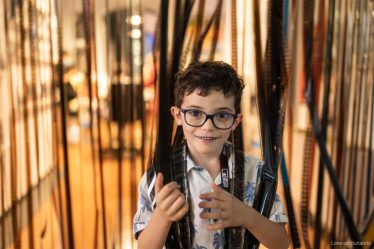
The project A scuola di cinema, conducted by the Cineteca di Bologna, ended on 31 May after nine months of activities for teachers and students in schools of all levels.
The project, promoted by the Ministry of Culture and the Ministry of Education within the framework of the National Cinema and Images for Schools Plan (CIPS) and with ECFA as one of its partners, involved 54 schools in 6 Italian regions (Emilia-Romagna, Marche, Tuscany, Campania, Basilicata, Sicily) with more than 3,200 students and 350 teachers participating. After an initial phase of producing interdisciplinary teaching materials (video lessons, fact sheets and in-depth thematic dossiers), which were uploaded onto the platform reserved for teachers on the Cineteca di Bologna website, training courses were organised for pre-school and primary school teachers, and for secondary school teachers. The first course aimed at introducing teachers to the language of images, starting from illustrated books and animated short films; the second intended to provide teachers with practical tools in order to accompany students in the making of a short film.
 The second phase of the project involved 60 cinema screenings of films from the past and present (4,200 admissions) and workshop activities in classrooms (4,000 admissions) with the collaboration of film professionals like screenwriters, producers, directors and DOP.
The second phase of the project involved 60 cinema screenings of films from the past and present (4,200 admissions) and workshop activities in classrooms (4,000 admissions) with the collaboration of film professionals like screenwriters, producers, directors and DOP.
The project made it possible to even reach geographical areas where film education had never been dealt with before, and led the participating schools to the production of around 50 short films. With the youngest children, we worked on the existence of different points of view, as well as on storytelling and fairy tales, starting with pre-cinema objects.
As part of the project, the second edition of Alain Bergala’s book L’ipotesi cinema. Piccolo trattato di educazione al cinema nella scuola e non solo has been published, a text that provides useful hints for an inclusive film education, starting from the daily school reality.
 The CIPS calls for proposals, addressed both to film education bodies and schools, have in recent years enabled a strong development of film education initiatives, allowing cinema to become a fully-fledged part of the school curriculum, albeit not as a curricular subject. This opens possibilities for collaboration in an area, rich in potential, but where there is still a lot of work to be done.
The CIPS calls for proposals, addressed both to film education bodies and schools, have in recent years enabled a strong development of film education initiatives, allowing cinema to become a fully-fledged part of the school curriculum, albeit not as a curricular subject. This opens possibilities for collaboration in an area, rich in potential, but where there is still a lot of work to be done.
